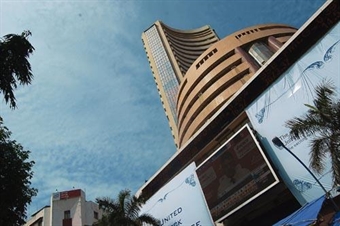
Financial advisors often suggest that neophyte investors invest either in large-cap stocks or large-cap mutual fund schemes. They justify this saying that these stocks / schemes are safe as many of them are 'blue-chips'. While the advice is well meaning, merely being classified as a blue-chip may not be enough to assure safety from an equity investor's point of view.
'Blue-chip' stocks are usually defined as stocks of well-established and financially sound companies which have demonstrated their ability to pay dividends in good and bad times."
While this definition connotes 'intrinsic safety' with high visibility in terms of dividend distribution, it does not indicate anything about safety against capital losses.
There is another interesting explanation for the term blue chip. In casinos the coin with the highest denomination was blue in colour and, hence, stocks deemed to be the highest in terms of quality were conferred this sobriquet. Now this is paradoxical indeed, considering that buyers of blue chips like to distance themselves from day-traders and the penny stock aficionados whom they look down upon as gamblers.
Investors can be divided into various categories based on the degree of safety that they desire in their investments. While every equity investor wants to eschew market price risk to the maximum extent possible, one of the most naiveways of doing it is through the indiscriminate purchase of blue chip stocks.
As in the case of several other popular perceptions, this strategy, too, may promise more than it can deliver.
Such stocks are already "discovered". Hence, every small development in the company is analysed to death. Consequently there is hardly an "X" factor in them. Of course, one could still purchase them whenever they fall steeply on account of any global macro event (such as 'Brexit”). However, on many other occasions, they will not be able to offer returns much higher than the broad indices.
These stocks are usually more liquid as compared to the rest of the market. Hence, they are liked by institutional investors such asmutual funds and insurance companies, not to mention the Foreign Institutional Investors. Also, due to the familiarity factor, they usually command a valuation premium to the lesser known names.
Now, liquidity is not really a critical factor for small investors as their actions usually do not move markets. On the other hand, many a time blindly buying a blue-chip irrespective of the valuations may cause more harm than good.
Apart from these points, the core assumption that blue-chips have less price risk embedded in them could be questioned. Sure, the intrinsic risk is lower, as many of these have high market shares and strong balance sheets.
There have been manias like the "Nifty FiftyMania" in theUSA in the mid 1970s wherein investors, after being burnt in small-cap stocks madly bought the big names believing them to be a safe haven.
However, this led to stratospheric valuations for these stocks and the ones who were unable (or unwilling) to sell out on time nursed their wounds for nearly one decade, before the next bull market in those stocks began. In India, too, the story of investors who suffered huge losses through the purchase of Infosys Technologies at a trailing PE ratio of close to three figures in early 2000 is legendary.
Finally, this elite club does not offer a 'Life Membership' option. Names like Orkay, Hindustan Motors, etc. were regarded as blue chips at one time. Today, some of those companies, though existing, are not thriving the way they used to. Also, many who were part of this hallowed list have ceased to exist.
Threats in the form of dynamic environments, both, external and internal to the company, are always present. Hence, one cannot adopt a "Buy and Forget" approach even in the case of blue chips.
In fact, it may be more pertinent to apply the blue-chip filter while investing in a company's debt instrument (say a Fixed Deposit or Debentures) as the chance of a blue-chip company defaulting on its debt servicing obligation is certainly lower as compared to a midcap company and, hence, an investor's principal will be safer.
In the case of equities, a 'good' company's management will not come to your rescue if you suffer capital loss because you have ignored the price-value equation.
A judicious blend of large and small companies appears to be the best way ahead. Hence, investing in multi-cap schemes holding a collection of large and small companies in the portfolio may be the most suitable option.
